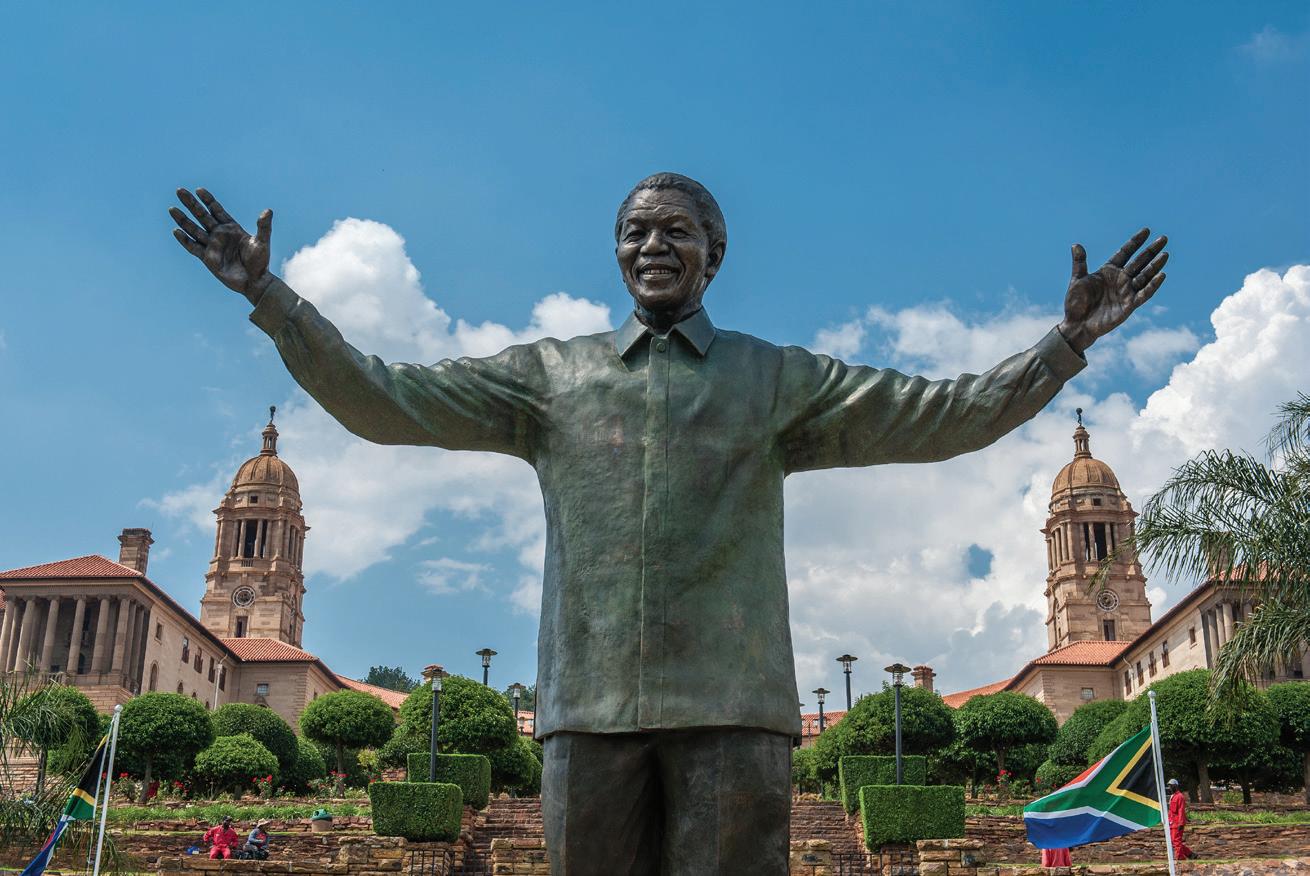
5 minute read
Carrying the hopes of many for equity and social justice
Justice Mandisa Maya
many tests of her leadership skills and tenacity. The SCA went through difficult period where issues of diversity were surfaced among her colleagues on the bench. She decided to face this head on by arranging DEI workshops to address those sensitivities. These were handled in a psychologically safe space where all views were welcome and a plan of action put in place.
She displayed decisiveness, bravery and inclusive leadership during those sessions. Opening oneself to hold courageous conversations as a leader of any team means being willing and ready to have your leadership style scrutinised and challenged by colleagues. Her success was found in her ability to ‘hold up the mirror’ and do her inner work on effective leadership and bias before pointing fingers at others.
Being born in a country like South Africa, where contrasting inequalities and related trauma, are a reality should make every citizen an activist for Diversity, Equity and Inclusion (DEI), where leaders strive to create an equitable society characterised by fairness and social justice. Justice Mandisa Maya’s life journey is a depiction of such activism. Never the one to bask in the comfort of her achievements, as she ascended the ladder of success in her career, Justice Maya has used her various positions and influence in society to advance those who have not reached their potential, due to artificial barriers of discrimination and exclusion.
Justice Maya is the first female Deputy Chief Justice for South Africa. She is also the first female jurist to serve as Deputy President and President of the Supreme Court of Appeal (SCA). As the president of the SCA, she faced
“I’m not good because I’m a woman, I’m just a good woman judge” - this is how Justice Maya responded when asked if South Africa was ready for a female head of judiciary, echoing the frustration of many women that this question was being raised at all. After all, as a judge, Justice Maya is aware of how unconscious bias and prejudice can have a negative impact on management decisions, including judgments. Thus, to hear such blatant bias prompted her sharp response. Social media was abuzz with her statement, and she was quoted repeatedly in many circles. To Justice Maya, this was an appropriate response to her ongoing work on equality and justice for all and especially women.
In 2004, she founded the South African Chapter of the International Association of Women Judges and remains actively involved as a member of this organisation as its President. She was elected as Vice President of its mother body, the International Association of Women Judges. Through her appointment as President of the SCA, she became a symbol of gender transformation, and is an important role player in the promotion of cultural, gender rights and equality.
It is important to mention that her passion for fairness and justice is not only limited to issues of gender. She knows that in South Africa, racial equity is also an area of focus for someone in her position. When Justice Maya was interviewed for the position before the Judicial Service Commission (JSC), she referred to the divisions that existed in the SCA amongst judges serving at the court. She revealed how Black judges occupied one side of the judges’ tea room while White judges sat on the other side. She took judges to diversity & inclusion workshops which were facilitated by Nene Molefi and her team, where integration was fostered to address these issues.
She acknowledges that South Africa is a deeply wounded society that needs to seek out the root causes of the problems in order to address them. She portrays the qualities of a conscious and present leader who is alert to what is going on around her. As so eloquently captured by the antiapartheid activist and lawyer Bram Fischer “The glaring injustice is there for all who are not blinded by prejudice to see”. By tackling the challenges within the courts, she is, by extension, preparing the ground for the important work of the judiciary in society.

The courts are a reflection of the challenges in society and the law is there to deal with these situations. However, judges are human and are not infallible. The decisions made on the bench are not easy and require a deep understanding of the issues society faces. It is clear that Mandisa Maya deeply reflects on every case that comes before her and seeks to improve the country we live in through her work. Through various projects that Justice Maya is involved in, particularly her community activism, she reflects a deep commitment to the values of the Constitution.
Incidentally, Justice Maya initially planned to become a doctor. However, after seeing a medical textbook and understanding what studying medicine entailed, she realised that she was not cut out to be a doctor. Her father started nudging her towards law. Naturally inquisitive, questioning, and rebellious in nature, law turned out to be a good fit for her. A great deal of gratitude is owed to her father who steered her towards a legal profession, as South Africa has a powerful woman as second in charge in the highest court of the land.
My take away lessons from Justice Maya’s leadership
1. Speak your truth and stand your ground as a leader.
2. Show vulnerability where it matters, introspect and move the team forward.
3. Being the first woman in such a powerful leadership position puts undue pressure on any leader. Her calm and firm demeanour stands out.










